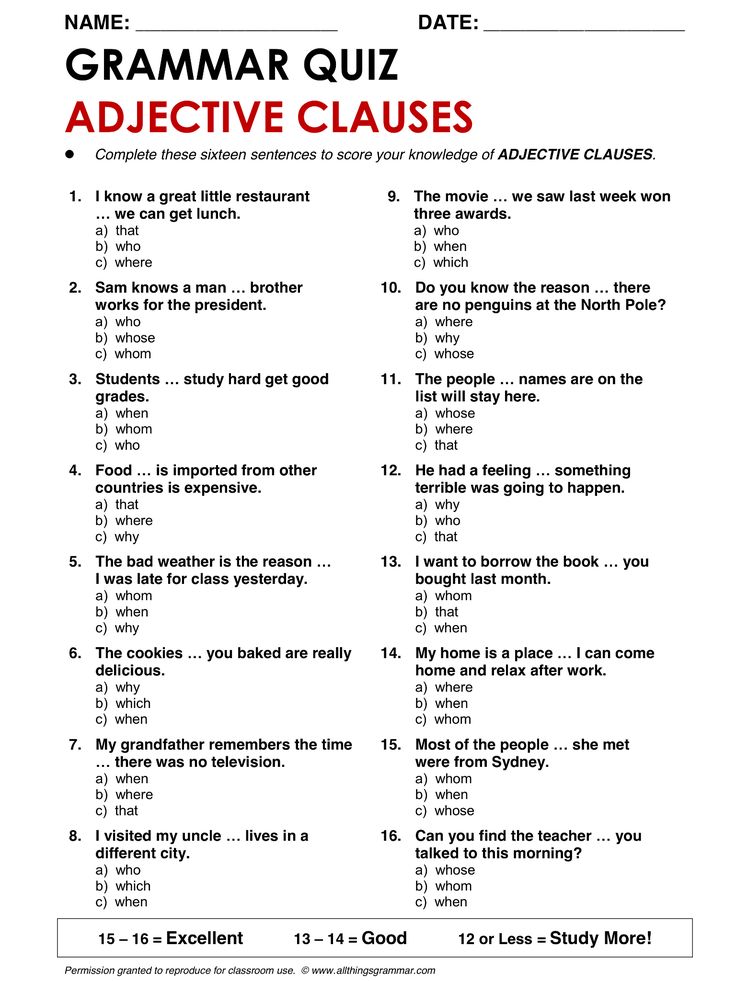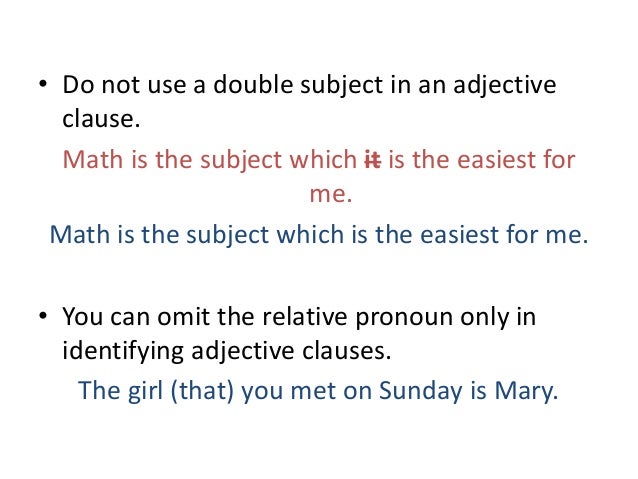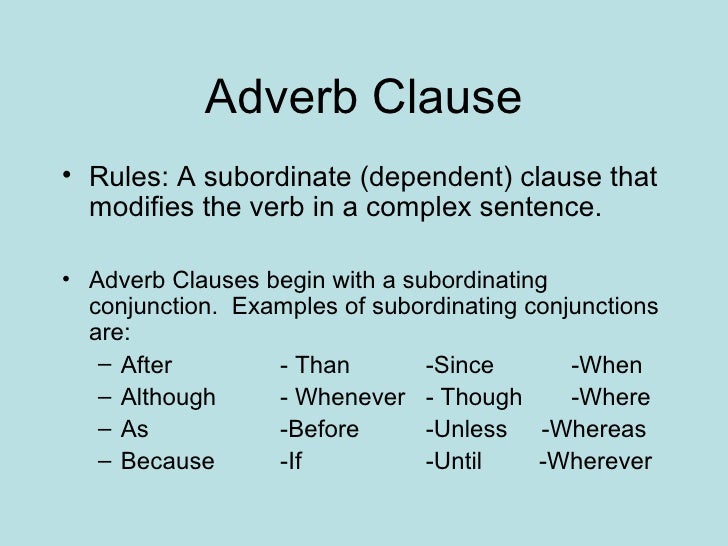

Since you have apologized, you will not be punished. (This adverb clause denotes a place, even though that place is not specific.)Ĥ. You can put the package wherever you like. (This adverb clause describes a certain condition, or a “how.”)ģ. (This adverb clause describes when the women took notes.)Ģ. the women took notes while being taught to cook. Choose the best answer to complete each sentence.ġ. The following exercises will help you gain greater understanding about how adverb clauses work. (This adverb clause describes why I had a milkshake for dinner.) After having my wisdom teeth out, I had a milkshake for dinner because I couldn’t chew anything.(This adverb clause describes when the dogs started chasing my car.) The dogs started chasing my car once they saw it turn the corner.

(This adverb clause describes how Jennifer scrubbed.) Jennifer scrubbed the bathtub until her arms ached.The adverb clauses in these examples are italicized for easy identification. While adverb clauses are slightly more complicated than simple adverbs, they are worth learning about. Third, all adverb clauses answer one of the classic “adverb questions:” When? Why? How? Where?Īs you read the following adverb clause examples, you’ll notice how these useful phrases modify other words and phrases by providing interesting information about the place, time, manner, certainty, frequency, or other circumstances of activity denoted by the verbs or verb phrases in the sentences.Second, adverb clauses contain subordinate conjunctions that prevent them from containing complete thoughts and becoming full sentences.First, an adverb clause always contains a subject and a verb.We are looking for a peace that is lasting.Adverb clauses always meet three requirements: Is there someone here who speaks Spanish? Other examples of vague or indefinite nouns.

I am looking for a secretary who speaks Spanish. Speaking about a non-specific secretary (one which may, or may exist) - (subjunctive)Įstoy buscando una secretaria que hable español. If the noun or pronoun modified is negated, nonexistent, vague, or indefinite, then the verb in the modifying clause will be in the subjunctive.

I'm looking for the secretary who speaks Spanish. Speaking about a specific secretary - (indicative) If the noun modified is a definite one, then the indicative is used. These clauses are most frequently introduced by the relative pronouns que (which/that/who) quien/quienes (who), el que, la que, los que, los que (which/that/who), or el/la cual, los/las cuales (which/that/who). Adjectival clauses function as adjectives modifying a noun or pronoun, which is known as the antecedent (antecedente).


 0 kommentar(er)
0 kommentar(er)
